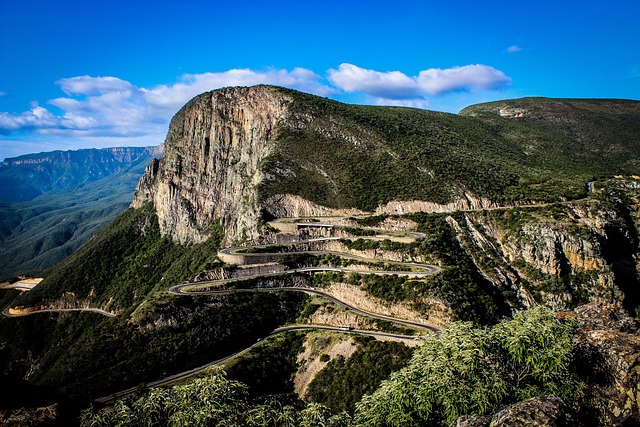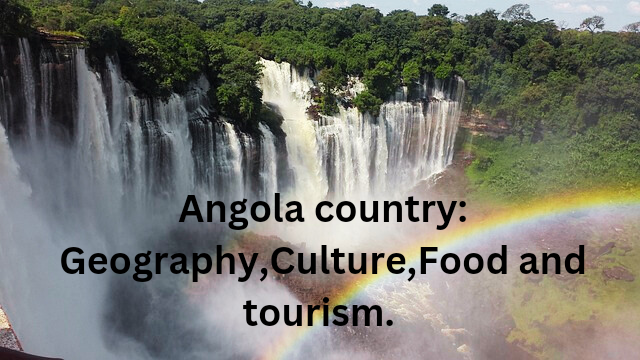Angola is a country situated on the south-west coast of Africa. Angola is a country that often remains undiscovered by many travellers. The country is full of its turbulent history, geography, culture, language, cuisine and a diversity of tourist attractions. Which makes it a hidden gem, information about the country of Angola is given through this blog.

Geography: Angola.
Angola’s geographical and natural diversity is one of its most striking characteristics. From vast Atlantic Ocean beaches to rugged inland landscapes, the country offers a stunning array of natural beauty. The country’s coastline stretches for more than 1,600 miles, offering pristine beaches and picturesque cliffs. Inland, the landscape changes to lush forests, vast savannas and rugged mountains, providing a paradise for wildlife enthusiasts and adventure seekers.
The Okavango River, one of Africa’s most important waterways, flows through Angola, forming the Okavango Delta—a UNESCO World Heritage Site. The delta is a biodiversity hotspot, home to many species including elephants, lions and innumerable bird species. For those looking for a unique blend of nature and adventure, Angola’s geography provides a playground for exploration.
Culture and Language: Angola.
Angola’s cultural landscape is a vibrant mosaic shaped by the influence of its diverse ethnic groups. The country is home to over 90 ethnicities, each of which contributes to a rich cultural heritage. Major ethnic groups include the Ovimbundu, Kimbundu and Bakongo, each with their own unique traditions, dances and art forms.
Music and dance are integral parts of Angolan culture. The rhythms of traditional music like Semba and Kizomba echo in the streets during festivals and celebrations. The art of storytelling is alive and fun, passed down through generations and preserving the history and traditions of the Angolan people.
Portuguese is the official language of Angola, a legacy of the country’s colonial past. However, indigenous languages such as Umbundu, Kimbundu and Kikongo are widely spoken, reflecting the cultural diversity within the country. This linguistic tapestry adds depth and nuance to the cultural experience, allowing visitors to immerse themselves in the authentic voices of Angola.
Food: Angola.
The country’s Angolan cuisine is a fusion of flavours, influenced by both African and Portuguese culinary traditions. The country’s proximity to the Atlantic Ocean ensures its cuisine has an abundance of seafood. Grilled fish, prawns and crab are the staple food here, cooked with a blend of local spices.
One of the typical dishes of the country of Angola is “Muamba de Galinha”, a delicious chicken stew made with palm oil, vegetables and spices. Funj, a starchy side dish, is usually served with meat and fish dishes. This porridge-like dish is made from cassava, corn or sweet potatoes, offering a unique and satisfying texture.
For those with a sweet tooth, Angolan sweets such as “cuscuz de milho” (corn couscous) and “cocada” (coconut sweets) provide a delicious end to a traditional Angolan meal. Exploring the local markets and street food stalls is a must for any food lover looking to taste the authentic flavours of Angola.
Tourism: Angola.
Angola’s tourism industry is growing, as the country opens its doors to showcase its natural beauty and cultural beauty. The country’s capital city, Luanda, is a vibrant metropolis that reflects both the historical and modern aspects of the country. Tourists can explore the colonial-era architecture, visit museums and enjoy the vibrant atmosphere of the city.
Quicama National Park, located just south of Luanda, offers a unique safari experience where visitors can see a variety of wildlife including elephants, giraffes and various antelope species. The park’s proximity to the Atlantic Ocean adds an extra layer of attraction, making it a must-visit spot for nature lovers.
Benguela is a coastal city, known for its beautiful beaches and historical attractions. The Benguela Railway, a testament to Angola’s colonial past, offers a scenic journey through the country’s landscapes, providing a unique perspective on its history and culture.
For relaxation seekers, the delightful island of Musulo, off the coast of Luanda, attracts with its pristine beaches and crystal-clear waters. Whether it’s water sports, cultural exploration, or simply relaxing on the beach, Angola’s tourism offerings cater to a wide variety of interests.
Angola, with its diverse geography, rich cultural heritage, delicious food and growing tourism landscape, is a destination that invites exploration. As the country continues to open up to the world, there has never been a better time to discover the treasures hidden within this African gem. Whether you’re drawn to the picturesque landscapes, the rhythmic strains of traditional music, or the taste of Angolan cuisine, this country promises a rich and unforgettable experience for those willing to venture off the beaten track.

